Kevin Jackson: ''Much turns on clients, they are drivers of the industry''
In an exclusive interview to Realnoe Vremya, one of the most influential experts in the event industry of the UK, founder of The Experience is The Marketing, senior editor of Live Communication Magazine in Europe Kevin Jackson who visited Kazan at the end of winter during Winter Event Forum told what will help Kazan to host the Olympics, how to get an order to put on an event from such a giant as BMW, what makes an event company valuable to a potential client.
''George P. Johnson have turned event marketing into a real science''
Kevin, you occupied the positions of top managers in large companies in the industry of advertising and event marketing, then you founded the consulting agency The Experience is the Marketing. What problems were you solving? Who were your clients? What results of the your in that period are you proud of?
I had privilege of working for George P. Johnson (GPJ) and Jack Morton. I think the interesting thing of those companies is that they are both old. Jack Morton, I think, is seventy-eight years old. George P. Johnson is hundred and two years old. What they've done is they've taken the event marketing to new level where a global brand could run the same event in multiple countries. It's about brand consistency, which every brand wants. We worked for global brands, such as PNG, Toyota, Cisco, HP, IBM running global problems. Jack Morton is well known for doing opening ceremony of the Olympics in Athens, they did the Commonwealth Games in Manchester, Melbourne, Glasgow, the World Cups in South Africa. George P. Johnson have taken event marketing and turned into a real science.
Within the global structure, what I'm proudest of is bringing new thinking and new ideas to global clients. Everything is a brand, it doesn't matter whether you're doing the Olympics. It's the brand of the city. So, when the World Cup comes to Moscow, it's going to represent Moscow. Every city is promoting that brand, it doesn't matter whether it's Athens, Beijing or London for the Olympics. It gives every city a chance to tell their story. It also gives whether Coca Cola, Adidas a chance to tell their story.
Taking into account your experience at the Olympics, I want to ask what does Kazan need to do to be the host city for the Olympics? Kazan has already had the experience of hosting major sporting events such as the Universiade, the FINA World Aquatics Championship, and others.
The Olympic bidding process is outside my sphere of knowledge but I work with people who do know – it's a very long and expensive road. But if look at the cities successful, what they've managed to do is to present a unique story to the Olympic committee. A unique story is a benefit for Olympic movement and that's the success. If you look at London, they've presented the story of many nations, it's a world city that has many nations in London in other cities. It was about youth and it was about the future. That was the story we told. This has nothing to do with Olympics, it has to do with life. The mistake everyone makes – they talk about the logical things: we got the best people, we have the best infrastructure, we will invest the most money. That's what everyone says. You have to find the unique emotional story. Because it's the emotions that change the behaviours.
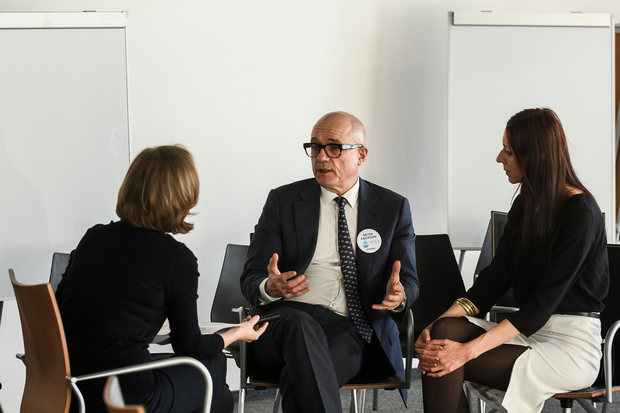
Within the global structure, what I'm proudest of is bringing new thinking and new ideas to global clients
Kazan is actively developing the tourist direction. What experience of event marketing of the European cities would you apply to promote Kazan?
Only for you – free advice (laughing). You have to think from the audience's perspective. Every brand, every city, every government has got a story to tell. But it's not your story. It's the audience's story. Every chief executive wants to stand up and make an important speech. But mostly, the audience don't want to listen. So, if you're thinking from the audience's perspective, how we are going to do something to create a great experience for them, that allows us to tell their story, then you will be in the right place. Because every experience has three things: environment, where you are, brand, which includes city and government, and audience. As long as you get these ratios correct… I think of it a way as of speaking and listening: you have two ears and one mouth, you should use them in that ratio. That's my free advice. For paid advice – call me (laughing).
''If I'm clever as I think I should be making my own business''
Why did you decide to establish your own business? How hard was it to make the decision?
I've worked for global agencies such as Saatchi, Grey, Interpublic, Jack Morton, George P. Johnson all my life. After 25 years, I thought: if I'm clever as I think I should be making my own business. It wasn't that difficult because, as I say in most of my university lectures to my students, I don't ever consider that I have a boss. I've always run my own thing no matter how big or small it was. But I suppose the mistake I've made is setting up seven businesses in the last year and it was a bit difficult.
Is it difficult to control?
No, everything is about energy. You've got to keep energy in. Do you know the second law of thermodynamics? In any close system no energy is lost. If you want energy back, clients, money, you've got to put energy in. After seven years doing seven businesses, when I came to Christmas, I was exhausted. But I has a good rest over Christmas and I was ready.
Have you built your business on the basis of previous customers or you had to attract new ones?
I've got some very strange and strict rules in my life. I will never make myself better by making someone else worse. I've spent my 20 years taking clients to agencies, I couldn't then go to the agency and take the clients out. I had to go and tell a new story to new people around my new businesses.
You've mentioned about your seven new businesses. What are they?
The magazine company which I have with Nadya. Besides, I have two consumer events. Then I have my growth agency The Experience is the Marketing. Within it, there are three separate companies: Marketing Consultancy, Culture Consultancy, and Sales Consultancy.
You are the innovation director in your company The Experience is the Marketing. Does this mean that the management of your company you delegated to another person?
No one is interested in talking to the CEO. Director's ideas on innovations – who wants talk to that guy? I suppose, the heart of what I do is ideas because it's ideas that connect emotionally, ideas change businesses. Operative administration I do myself. But, of course, there are also senior guys who do not need managing.
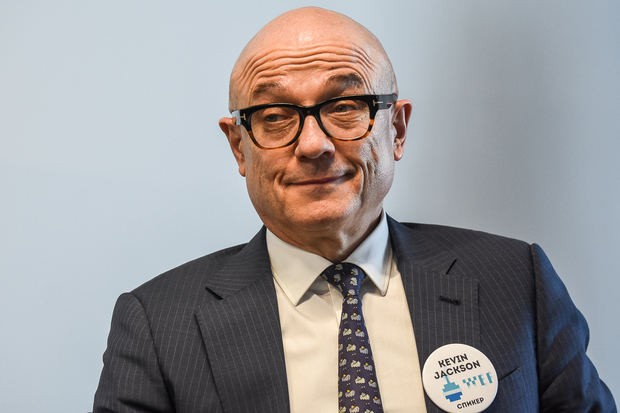
I've got some very strange and strict rules in my life. I will never make myself better by making someone else worse
''I started thinking of brands as people''
Your status as the president of ISES UK enables you to influence the industry as a whole. How do you assess the state of the industry in the UK?
I think every event industry is in a state of change because so much has changed. Being in the position to influence the industry is the reason I'm creating the magazine, occupy that position and so on, because I want us as an industry, a global industry to get better. I think that we can be more important that advertising. But we need to become a bit more grown up. We're like a teenager, they are like a mature person.
What problems of the industry have you managed to identify and solve within the framework of the association?
I don't think it's a problem solving role, it's an opportunity creating role. It's about showing the industry where they are heading, it's about giving them the tools to understand what they need to do to change about their own companies. It's helping them to understand how to use these tools and networking them amongst like-minded people. It's like the difference between climate and weather, we are interested in the long-term — the climate. The event industry is growing, how they are gonna to take advantage of it. Yes, I may have lost money this year, had problems last year. We look from the global perspective.
What plans do you have for the next five years?
You only sit on the board of this association ISES UK for three years. This is my last year. For these years, I've created a succession plan for the next six years because it takes a long time for these plans to work. So we worked on thought leadership, digitalisation, businesses and brands.
People suppose that companies that are not part of professional associations can't get an order from a big brand, for instance, BMW. Is it true?
No. I think it used to be true. The world has changed. Such companies as BMW are looking for fresh innovative ideas. Yes, you have to be reputable but you don't have to a huge organisation. People ask me that all the time how I started to work with BMW, Coca-Cola. Why should they work with you? What are you gonna do to make their life better? Not how much they are gonna pay you but what you are gonna do to make their life better. Show them what you can do. Invite them to something, send them something, build a relationship. It takes a while but you have to be focused. It is like winning the heart of your girlfriend or boyfriend to marry you. You don't date a hundred people, you date one person. Focus. The best thing I ever did was to start thinking of brands as people, with feelings and characteristics. If you want the brand to love you, you have to love the brand. If you want your audience to love you, what are you gonna say to them? What are you gonna do for them? You've got to think of them as a real person. It is a real relationship. You want to build a relationship with your brands.
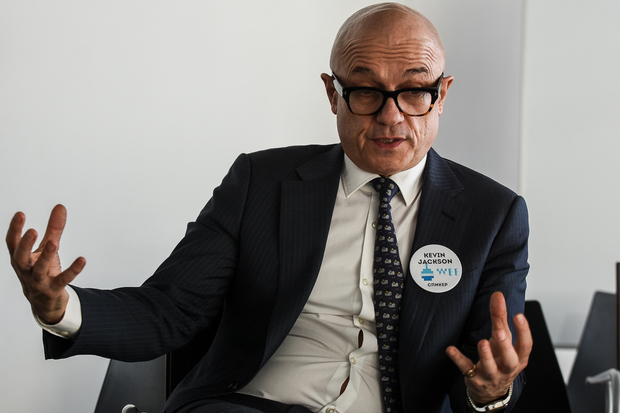
The best thing I ever did was to start thinking of brands as people, with feelings and characteristics. If you want the brand to love you, you have to love the brand
''Enthusiasm is driving you forward''
Does the Russian event market differ from a European one?
Are not you Europe? (laughing). It depends on which foreign market you are talking about. For me, honestly, the UK market is probably the most developed followed by maybe Germany, France in terms of creativity. The thing with the young event countries, it's the enthusiasm and entity that's driving you forward. Just in the last four years, I have seen a big evolution in the Russian event industry. If you take the EuBea festival, which was in Saint Petersburg, I think Russian companies won three or four top prizes among European countries.
The Russian event market develops spontaneously. What problems can arise because of that?
What problems can arise from chaos? Some chaos is good. Chaos is not all bad because it is energy. There is a bit of chaos, it is what usually happens. And all of a sudden a couple of big agencies buy small agencies. There tends to be an order, and then chaos comes happen. It is happening in the UK a lot. Much turns on clients, they are drivers of the industry. If clients encourage chaos, there will be chaos. If they encourage order, there will be order.
You are a market player and observer as head of the association. Could you give some advice to event market players who offer their services.
Learn how to measure your results. If you can't prove that your client's money gained them business, they won't spend money with you. It doesn't mean they need their money back but they need some business benefit. The result can be measured by other indicators like market share, they need some business benefit.
Then don't get caught up with talking about technology. Focus on the audience. If it serves the objectives, bring technology.
People need to be multi-skilled. They need to understand architectural design, environmental design, creative execution – that's what we are looking for. It is a Swiss army man.
The other thing I would urge the Russian event industry is don't moan about your clients. For some reason, everyone moans that client doesn't trust us, they did not give us enough money. My advice is to introduce something about it or stop moaning.
Event marketing has very costly budgets. Weighty arguments are needed to ensure the client to use this area of marketing mix. It is necessary to demonstrate the profit. What tools do you use to measure efficiency?
The things we do don't have to be expensive. What we need to understand is what we are trying to do for the business. As an industry, we need the brand to tell us: ''I need to increase sales, I need to improve shareholder loyalty, I need to improve staff efficiency.'' If we are being judged against business benefits, then we can always show the return investment. If someone says to put on an event, the event is either good or bad. So we need to understand what the business needs driving this event. We will build an event that delivers that business' objective.
We can measure, for instance, market share increase in numbers. Howtomeasureloyalty?
You can measure affinity with a brand, whether you like it or not. And you can measure whether you are more or less likely to continue relationship with the brand. Then you can track that over time because once you've got the relationship with consumer, you can keep tracking him.
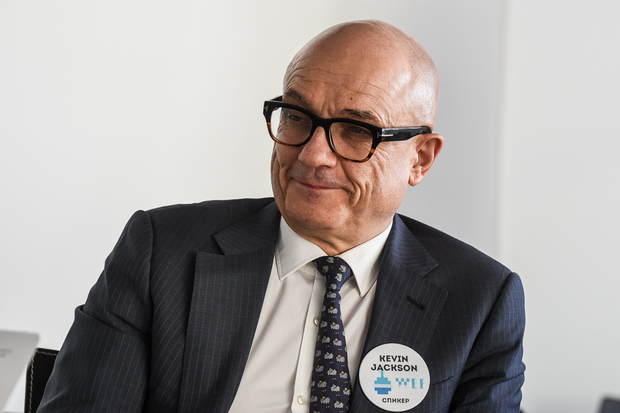
For some reason, everyone moans that client doesn't trust us, they did not give us enough money. My advice is to introduce something about it or stop moaning
The next evolution of event industry is to own data. You've got an audience in the room of 5-10,000 people. You know something about them. They've been to the event, they've heard certain things, they've done certain things, they've eaten certain food. It is important to own the registration data, own the event data, post-event data. An event company that owns this data has now got a big value to a potential client. From the client's point of view, I have a value because I own the data about his clients and potential audience.
''Creative idea first, then total transparency''
You have participated in Russian event industry events many times. What changes in the Russian event market are you seeing?
The food has got a bit better. The content is also betting better, the messaging is getting better and even production deliveries. This is good.
Budget optimisation is the latest trend in event market. How to choose the best event format, so that optimisation won't affect efficiency? Is there any recipe how to economise without losing quality?
That trend is everywhere, not just in Russia. It is in Germany, France, America, Hong Kong, China. Everywhere there is a procurement department. I found the best way to work like that. It is important to offer an idea that the client will want to find money for. Every client knows we have to make money. Just be honest about the money you are making. If you need to make a 30% profit, tell the client. If you are happy with 20%, tell the client. Show what you are doing. The only time when clients have issues is when they think you are not telling the truth. And they start investigating. I've won some of my best work being very honest with the client. And I said to the client: 'No agency can make less than a 22% profit on a job. If you can't see the 22%, they are hiding it somewhere. So, one – a creative idea, two – total transparency.
Back to my original relationship point, you can't lie your partner, can you? The truth always comes out. In relationships, business and personal, you have to be honest.
If client insists on discounts, it is it better to refuse the cooperation that will be unprofitable?
Every client relationship is a value exchange. You give something to get something. Sometimes what you get is not just money. Let's put an example of BMW because we have already mentioned them. You've got to do an amazing job for BMW, you will get not only money, it will affect your reputation, it is experience, portfolio. But only you can decide what that value exchange is.
Maslow's hierarchy of event needs
You have large experience in the field of marketing and advertising. Why did you choose the specialization in event marketing?
Because I think it's the future. Advertising creates awareness. Experience, event marketing creates relationships. There's almost no job we can't for brand or business. Most thing need a behaviour change, and we create behaviour change through emotional connection. It's our emotions that drive our behaviour no logical or rational approach. We create these emotions.
Have you ever thought of writing a book?
That was one of the things I did last year. It is called Event Professional's Handbook. I would not be so arrogant to think I know everything about everything. But I do know everyone. So I invited 12 people to write a chapter each. It is about sponsorship, production, Maslow's hierarchy of event needs. It is a great book. It is on a free download on Amazon. And the publishers asked me to write another one. And this time I am doing one in Russian.
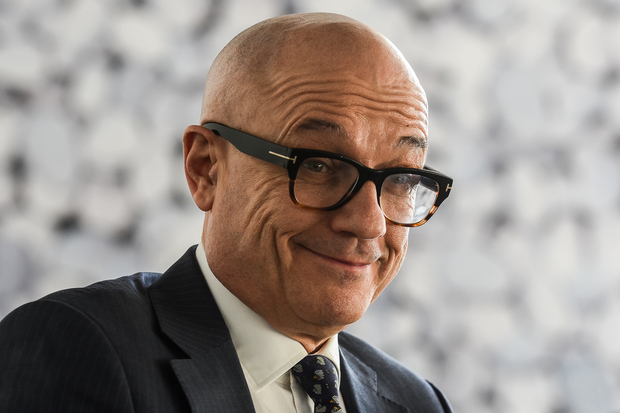
There's almost no job we can't for brand or business. Most thing need a behaviour change, and we create behaviour change through emotional connection. It's our emotions that drive our behaviour no logical or rational approach. We create these emotions
It is known that you don't like sleeping, you stay up late and wake up early. Where do you get energy from?
I don't know. I do think about those things because I don't' have jet lag either. I think it's just like being good at running, it's just something I've got. It's just a thing like being good at art, being good at juggling. I don't know where it is from, thank mom and dad.